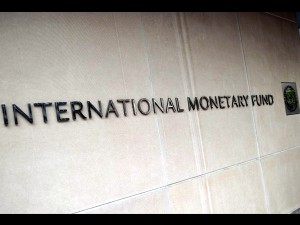Merchandise exports declined for the third straight month while imports posted growth for two consecutive months in February, further widening the trade-in-goods deficit to $6.708 billion at the end of the first two months.
Preliminary Philippine Statistics Authority (PSA) data showed that sales of Philippine-made goods overseas fell 3.9 percent year-on-year to $10.456 billion as of February, while the value of foreign products that entered the country in the first two months rose by 3.1 percent to $17.165 billion.
As such, the balance of trade in goods remained at a deficit as of the end of February and the gap was 16.4-percent bigger than the $5.763-billion deficit a year ago.
In February alone, exports fell 0.9 percent year-on-year to $5.177 billion, although this was the slowest drop since December last year.
While shipments of fresh bananas, cathodes, manufactured articles, electronic products and chemical increased in February, exports of metal components, gold, machinery and transport equipment, other manufactured goods and ignition wiring sets used in vehicles, aircraft and ships recorded declines.
The United States, Japan, China, Hong Kong, Singapore, Thailand, Germany, South Korea, the Netherlands and Taiwan were the top 10 destinations of Philippine exports that month.
Meanwhile, imports grew 2.6 percent to $7.966 billion in February, accounting for 60 percent of total trade that month, due to the influx of transport equipment, cereals, mineral fuels and lubricants, food and live animals, and telecommunication equipment and electrical machinery from overseas.
The top 10 sources of Philippine imports in February were China (which accounted for one-fifth of the total), Japan, South Korea, Thailand, the United States, Indonesia, Singapore, Malaysia, Taiwan and Vietnam.
While total two-way trade inched up by 1.2 percent to $13.143 billion in February from $12.988 billion a year ago, the deficit widened by 9.9 percent to $2.788 billion from $2.537 billion last year.
For ING Bank Manila senior economist Nicholas Antonio T. Mapa, the yawning trade gap in favor of imports was a manifestation of “slowing” economic growth.
“Imports continue to grow, albeit at a more subdued pace in 2019 compared to previous years. The fuel import bill has increased but the slowdown in shipments of raw materials and deceleration in capital goods imports reflect slowing growth momentum and should be a cause of concern. Elevated borrowings after the Bangko Sentral ng Pilipinas’ aggressive 175-basis point rate hike salvo [in 2018] may be hampering capital expansion while the budget delay, which put government projects on hold, led to the contraction of importation of construction materials. Consumer import growth, outside vehicles, shows household spending will likely regain prominence in 2019 now that inflation is firmly within target and falling,” Mapa said in a report.
“On export side, outbound shipments remain dependent on electronics trade which managed to post meager growth prints while the rest of the sector had struggled. The trade war [between the US and China] means the Philippine export sector will need to continue to build on sector-changing reforms to help boost productivity, by enhancing supply chains and increasing standards while hoping a weaker currency can buy them time to stay afloat until the true export renaissance. Until then, our view of trade deficits will continue to exert a depreciation bias on the peso but with the slowdown in capital goods and raw material imports, trade deficits may not be as pronounced and current account gaps will likely improve in the coming months,” he added.


